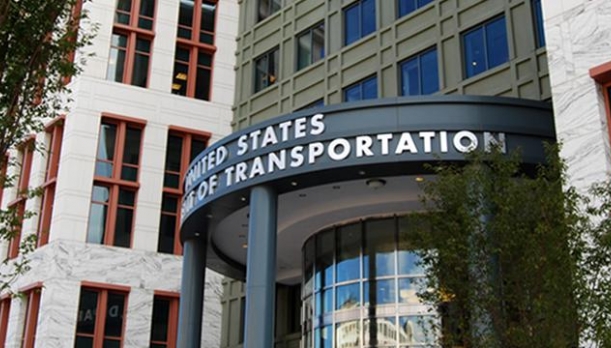Image: RNT Foundation
Transportation depends upon the Global Positioning System (GPS) and other Global Navigation Satellite Systems (GNSS) pretty much everywhere, according to the US Department of Transportation’s (DoT) Acting Deputy Secretary.
While this may seem intuitive to most people, Steven G. Bradbury felt compelled to state it in some detail in an eight page letter sent in November. He was writing to the Commerce Department to protest a Federal Communications Commission (FCC) proposal to approve operations by Ligado Networks. DoT technical analysis shows that Ligado’s transmissions will interfere with GPS reception for many users.
In May a redacted version of the letter became publicly available as an attachment to the executive branch’s petition to the FCC to reconsider its decision in the Ligado Network’s case.
The letter provides a good primer, and reminder, of the importance of positioning, navigation, and timing (PNT) services provided by GPS/GNSS, and how they are a single point of failure for transportation. While the letter does not use that terminology (though it has occasionally been used by DoT officials), it is clear that the message is “If GPS goes away or degraded, lots of bad things will happen.”
It is easy to imagine an increase in highway accidents as drivers become lost and even more distracted, air traffic delayed as airplanes fly less efficient routes, maritime cargo slowed as container operations are degraded, and so on. In fact, every mode of transportation will undoubtedly slow down, carry less capacity, and have more accidents whenever GPS is disrupted.
Bradbury’s letter discusses nine different areas in which GPS has become essential and integral for transportation. In addition to greatly improving navigation efficiency (fuel economy, time savings, etc), GPS also enables:
- Police, Fire, and other Emergency Vehicles – situational awareness and coordination
- Commercial Trucks and Buses – fleet management and compliance monitoring
- Automotive Navigation Systems – accident monitoring and driver assist
- General Aviation – electronic flight bags and other pilot support
- Positive Train Control and Other Railroad Operations – testing, maintenance, asset management
- Maritime – buoy positioning, draft management, traffic coordination
- Survey and Construction – design and construction of transportation systems
- Commercial Drones and Other Precision Uses, Including Precision Agriculture – delivery services, planting, fertilizing, and pest control. This section also mentions the impact on a million hobbyist drones in the United States, along with the almost 500,000 professional drones.
- Timing – the Federal Aviation Administration alone uses over 3,000 GPS-based timing devices in mission and support systems
As lengthy and far reaching as it was, Bradbury’s letter did not have his desired effect. In April the FCC approved Ligado Network’s application, despite the formal opposition of the executive branch of government led by the Departments of Defense and Transportation.
DoT technical analysis shows that Ligado Network’s proposed transmission will not interfere with all GPS receivers in a given area, but it will impact some. The FCC’s decision in the matter acknowledges this, requires Ligado to reimburse the government for the cost to replace its impacted receivers, and sets up a reporting structure for others who will be impacted.
In their responses to the decision, the executive branch and many others have decried these provisions in the order as impractical and effectively meaningless.
Others have suggested that the FCC focused entirely on advancing communications interests and failed to balance those with the overall negative impact to other sectors. They assert that, even if the great majority of GPS receivers will be unaffected, there are still so many that will be harmed that the overall all impact to the nation of the FCC’s decision is very harmful. The RNT Foundation has made that case in filings with the FCC.
At the moment, the FCC is considering numerous appeals of its decision, some in Congress are considering legislation, and some entities are considering filing suit against the FCC in federal court.
It is certain that the long saga of the Ligado Networks proposal is far from over.


